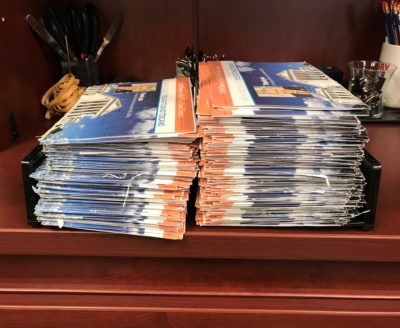The session is now in its fourth week, and the pace has not let up as the deadline for crossover approaches. If you want to watch our work, you can find links to the live and archived versions of the floor sessions here, and committee sessions here.
GUNS AND WAR MEMORIALS
Last Friday was Groundhog Day and we have again witnessed the defeat of most of the gun safety bills. These are often referred by the Speaker to a small subcommittee of largely rural legislators, where they are dispatched quickly in party-line votes. I had two bills (HB 1009 and HB 1019) that both met this fate. The first was a bill to add the City of Charlottesville to a list of jurisdictions where semi-automatic weapons are not permitted in public spaces. The second was a bill to allow localities throughout the Commonwealth to prohibit the carrying of weapons and firearms into a permitted demonstration area. Both of these bills were filed in response to the events of August 11th and 12th. Each was defeated on 4 – 2 votes in a small subcommittee of the Militia, Police, and Public Safety Committee of the House. Similar bills have also died in the Senate, along with other gun safety measures.
My bill (HB 1225) to clarify the law related to war memorials met a similar fate in a different committee. The bill was narrowly tailored so that it involved only war memorials from the Civil War. It also exempted monuments that have been designated on the National Historic Register, and further provided for a public process before any local action could be taken, including the possibility of a public referendum. The bill nonetheless died in subcommittee. You can see my presentation about the bill here.

DOMINION AND THE REPEAL OF THE SO-CALLED “RATE FREEZE”
I have been skeptical of the measures (in both House and Senate) proposed to date to address utility over-earnings that resulted from General Assembly action in 2015. I support returning the State Corporation Commission (SCC) to full rate regulation over electricity providers, including Dominion; rebating over-earnings by Dominion and the other utilities to consumers; and providing needed incentives for investments in renewables and in weatherization to assist with energy conservation. There is a compromise now under consideration that we will see shortly. As I have stated repeatedly, I will not vote for a bill unless it includes both consumer rebates and expansion of renewables.
During last year’s campaign, I promised to bring a bill to create a tax credit for energy storage systems, such as batteries, as a further incentive for individuals and businesses to adopt this type of advance in using renewable energy sources. That bill (HB 1018) was reported by a Finance subcommittee on Friday, and will be heard by the full committee on Wednesday. This is a significant bill that would give a number of companies greater incentives to market and encourage installation of energy storage systems in the Commonwealth. We have a major energy storage company in Virginia, Fluence, but they largely do business in Maryland, because it has such a credit. The hope is that we could involve them, as well as other companies such as Tesla, in marketing energy storage systems to residential and commercial customers.
My study designed to understand better how to provide incentives for this area (HJ 101), has also been recommended for passage. When we are able to store and retrieve renewably-generated energy effectively, everyday use by customers will expand dramatically. One of the challenges with renewable energy sources, especially solar and wind, is that energy is only generated when the source is available. But if you can store excess energy on site, it makes it possible to dispatch it when the source is not available, even at night. This will help with improving grid resilience and stability, as well as lessening people’s energy bills.
WORKFORCE AND OTHER BILLS
Last week, the House passed two of my bills, including one that will provide more protection to victims of abuse (HB 1364) by closing certain court proceedings to the public.
In the next few days, the House will consider, and hopefully pass, a bill (HB 1262) that would allow the Commonwealth to donate surplus motor vehicles to Virginia community college foundations. This idea, brought to me by Ridge Schuyler from PVCC, if passed, would add another source of vehicles to the pool PVCC maintains to help low income persons get to and from workforce training classes, as well as new jobs being located for them.

RESPOND TO MY SURVEY
I hope you will return your survey to me as soon as possible. Your comments really do matter and I hope to hear more from you as the session proceeds.
You can also take the survey online.
